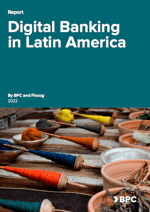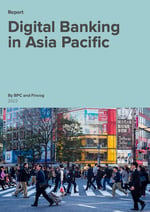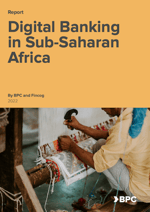Behind every business, whether it is in-store or online, is a payment gateway and payment processing service providers. They make sure that transactions are carried out seamlessly to enhance customer experience and improve business reputation.
Behind every business, whether it is in-store or online, is a payment gateway and payment processing service providers. They make sure that transactions are carried out seamlessly to enhance customer experience and improve business reputation.
On the surface, the entire process of a credit or debit card transaction appears simple, taking only a few seconds. However, it is a lot more than just tapping the card on a POS machine. Payment processing services consist of various steps and include different parties such as:
- Customers
- Merchant/ business
- A payment processor
- Payment gateway
- Bank/ credit or debit company
- Merchant account/ business bank
What is a payment processing service?
Businesses that provide payment options through credit or debit cards to their customers need a payment processing service provider who would help them in crediting the money into their bank accounts. They collaborate between all parties involved to make the payment process efficient and seamless for the merchants and customers. Payment processing services are the ones who fulfil a number of steps required from authenticating to settling a transaction. They make sure merchants receive their money in their bank account from all transactions that don’t involve paper money. These transactions mainly include payment methods such as credit cards, debit cards, e-wallets, etc.
Payment processors are companies that function as a mediator between merchants, customers, and financial institutions that process transactions. They are an important part of the global financial chain.
They are entities which synchronise non-cash transactions by validating all information and also distribute funds to the merchant, once a sale is completed. As a payment processor, not only to the merchant, but also making sure even the issuing bank receives its funds. The network payment processors own lets them accommodate a flow of data between all parties.
They are entities which synchronise non-cash transactions by validating all information and also distribute funds to the merchant, once a sale is completed. As a payment processor, not only to the merchant, but also making sure even the issuing bank receives its funds. The network payment processors own lets them accommodate a flow of data between all parties.
How does payment processing work?
Payment processing services include authorisation, funding, and settling of a transaction. When a customer purchases a good or service, the payment is made with the card at the point of sale (POS). Even though the transaction takes seconds, the actual process behind the transaction is intricate.
The merchant sends a request to their payment processor for the authorisation of the transaction and then the payment processor carries out essential steps:
- The payment processor submits the transaction to the card association connected to the issuing bank.
- The issuing bank either accepts or rejects the transaction based on certain criteria.
- The issuing bank then sends either an approval or a rejection status back to the merchant bank and finally to the merchant.
After the process of authorisation, comes the process of settling and funding. This is where the transaction is deposited into the merchant’s account. The merchants send the authorisation request to the payment processor, which then sends the details to the card association. The card association is connected with the issuing bank therefore, the issuing banks receive the details of the transactions and further carries out the process which includes:
- The issuing bank charges a sum from the cardholders for the transaction.
- The issuing bank then transfers the relevant amount to the merchant bank minus the interchange fee.
- The merchant bank transfers the amount to the merchant’s account.
How to choose a payment processor?
For businesses that accept credit or debit cards, payment services are an integral part, for the simple reason that they need to receive money which does not come to them traditionally in the form of a paper currency. While choosing a payment processor, it is important to consider certain things apart from the pricing packages.
Some of the things that can be essential while deciding a payment processor are:
Beyond the points mentioned, another thing to consider is the fact that not all payment service providers process every type of transitions. Some may be experts at online processing, accepting card-not-present (CNP) transactions and some may specialise in in-store payments. The CNP payment processor is an online payment gateway, which is equivalent to the POS.
What types of payment are processed?
Within an online payment process, you will have the option to accept a wide range of payment methods. The most frequently used ones are:
- Debit/Credit Cards: One of the most widely used by consumers. In a transaction with a card, the buyer provides the card details, and these details are transferred to the payment processor.
- E-wallets: E-wallets are another type of important payments that can be processed. Consumers who prefer this mode of payment sign up for the e-wallet with their bank account or debit/credit cards. One of the prominent e-wallets is apple pay and Paypal which is popular in North America and Europe, while Alipay and We chat dominate in Asia.
- Bank Transfers: Mostly preferred for B2B transactions, this mode of payment gives the shopper complete control over the transaction, as they have to authorize by themselves to initiate the transaction via their online banking.
Payment processing service providers assist merchants and customers in carrying out a smooth transaction. They mediate between the customers, merchants, card association, and the issuing bank, which makes them an important part of the financial industry.
As an experienced partner for your payment processing needs, Radar Payments guarantee seamless payment transactions that give your customers a fast and enjoyable shopping experience. Talk to our experts today and know more about what suits your business the best.




